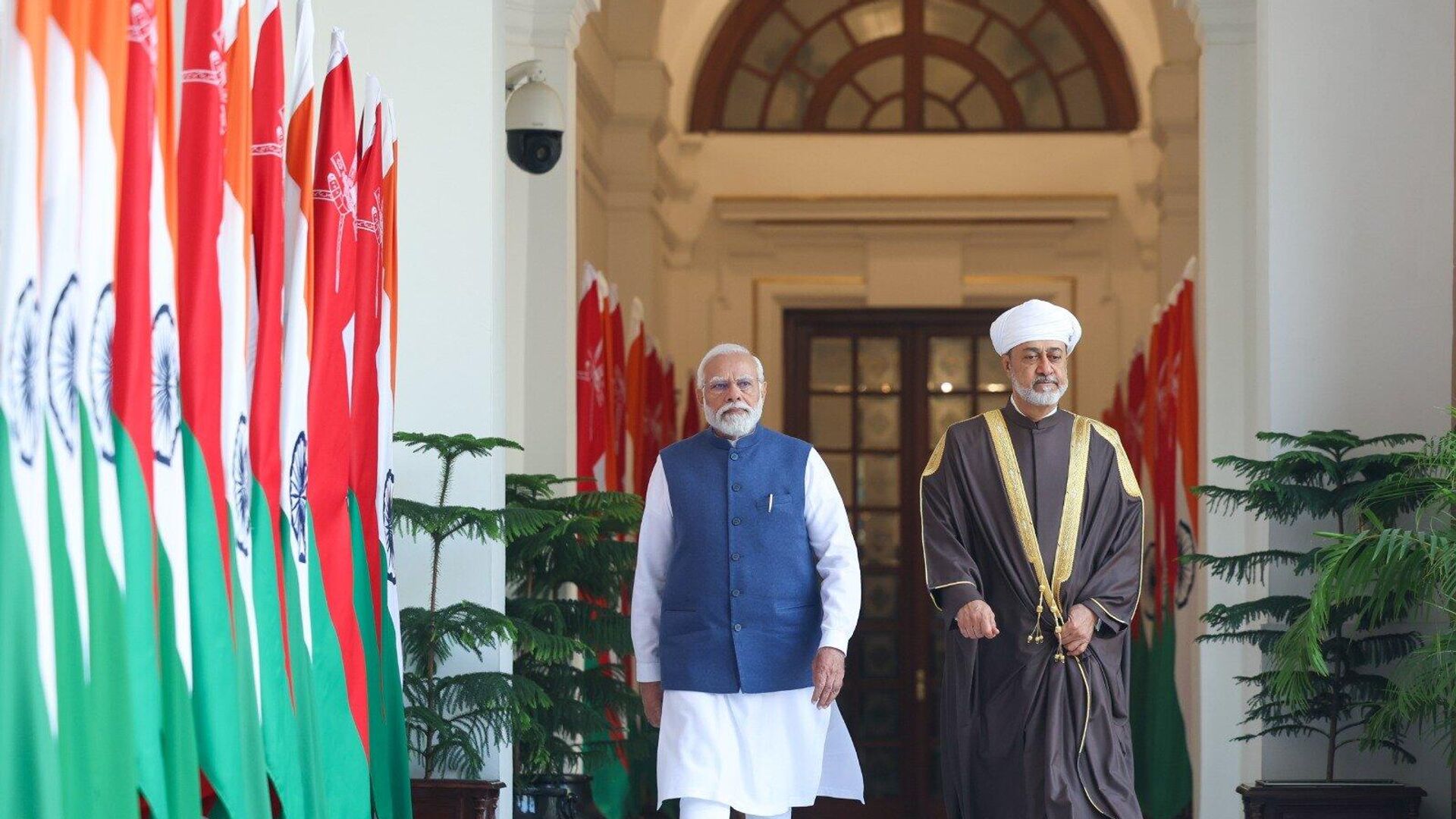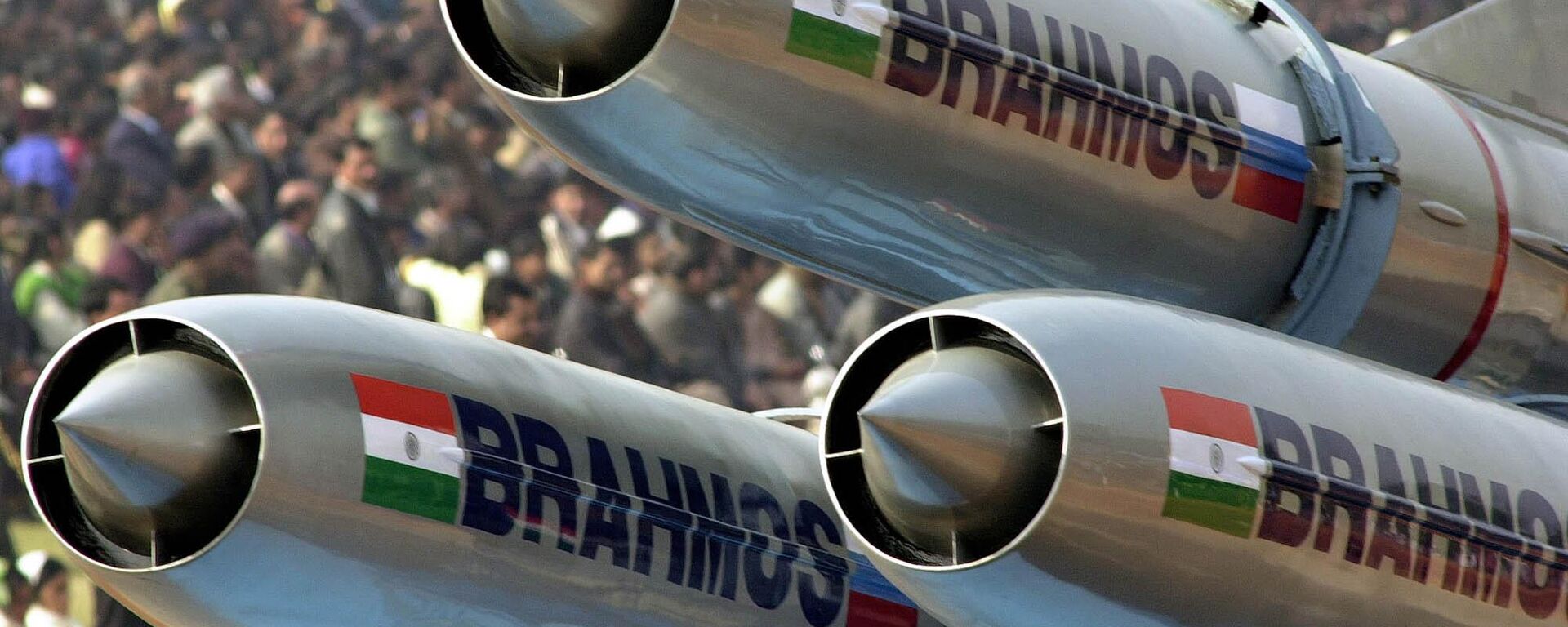https://sputniknews.in/20240912/explaining-omans-strategic-importance-for-india-8137757.html
Explaining Oman's Strategic Importance for India
Explaining Oman's Strategic Importance for India
Sputnik India
An Indian Air Force team with MiG-29s, Jaguars, and C-17s is set to join the seventh Exercise Eastern Bridge at Air Force Base Masirah in Oman from September 11 to 22, according to the press release on Wednesday.
2024-09-12T20:34+0530
2024-09-12T20:34+0530
2024-09-12T21:17+0530
sputnik opinion
oman
india
indian ocean
indian air force (iaf)
government of india
ministry of defence (mod)
ministry of external affairs (mea)
defense sector
south asia
https://cdn1.img.sputniknews.in/img/07e7/0c/11/5861717_0:218:1600:1118_1920x0_80_0_0_3d2dc22c6f4fa11a7cb9fedbba7c18d1.jpg
An Indian Air Force team with MiG-29s, Jaguars, and C-17s is set to join the seventh Exercise Eastern Bridge at Air Force Base Masirah in Oman from September 11 to 22.Oman and India hold regular bilateral exercises and staff talks involving all three branches of the armed forces, including the Naseem Al-Bahr naval exercise, the Al Nagah army exercise and the Eastern Bridge air force exercise.Oman, strategically positioned in the North Arabian Sea and part of the Persian Gulf region, shares India's interest in ensuring stability around the Strait of Hormuz, making their strategic partnership mutually beneficial, retired captain Sarabjeet S Parmar, a distinguished fellow at the United Service Institution of India, told Sputnik India.Parmar stressed that close cooperation between their military services "enhances interoperability and contributes to regional stability.”Oman is a partner for India within the Gulf Cooperation Council (GCC) and has built up trust through cooperation in military and security matters, including counterterrorism and the handling of extradition requests for criminals, former ambassador Anil Wadhwa, a distinguished fellow at the Vivekananda International Foundation, told Sputnik India.As part of its strategy to increase its presence in the Indian Ocean region, India has gained access to the strategic port of Duqm in Oman for military operations and logistical support.Parmar agreed that Duqm is also valuable for Indian warships, providing a refuelling and supply point that extends their range in the North Arabian Sea and is close to key sites like Chabahar.“Oman’s unique position allows it to strengthen its role in regional stability, working alongside India to address common maritime threats and support sea lines of communication, which are crucial for oil transport,” he added.Oman’s Strategic Partnership with India: A Pillar of Regional SecurityParmar explained that deepening bilateral relations with regular joint exercises, underlines Oman’s significance as a partner in keeping regional security and addressing atypical threats.Wadhwa said India's defensive strategy “includes strengthening its Sea Lanes of Communication (SLOC), with key locations such as Mauritius, Seychelles, Assumption Island, and Duqm.”Former ambassador Talmiz Ahmad told Sputnik India that Oman has been a vital military and strategic ally for India, particularly in the 1993 proposal by the Sultan of Oman for India to help improve Oman's security in the post-Cold War era.The relationship between Oman and India survived the British colonial period, with India’s Gujarati and Keralan communities in Oman maintaining commercial and cultural ties.The British retained a strategic foothold in Oman due to its crucial location near the Strait of Hormuz, the former Indian ambassador to Saudi Arabia, Oman and the UAE noted.“While British influence in Oman has diminished, India's role is now pivotal, particularly in securing crucial sea lanes and conducting military exercises, which help enhance mutual understanding and capability," Ahmad said. "However, the British Intelligence Service MI6 is still very active in the region.”From Hormuz to Duqm: India's Strategic Maritime Connection with OmanThe ambassador explained that India's strategic interest in Oman goes beyond the Hormuz Strait to its extensive Indian Ocean coastline, featuring key ports like Sur, Sohar, Muscat, Duqm and Salalah, which have aided close maritime connections and trade with India.Ahmad pointed out that Oman subsidises gas supplies to the Oman India Fertiliser Company plant in Sur, which sells all of its production of urea to India.The Ambassador noted that Duqm, located just north of Salalah, holds significant potential like Jebel Ali, and benefits from its open Indian Ocean location, avoiding the saturation and high costs associated with the Persian Gulf.The port has a commercial dock, a dry dock for ship repairs, an oil refinery and a large economic zone.Despite initial enthusiasm, the development of Duqm faced setbacks, including the impact of the pandemic and Oman’s limited resources compared to the UAE, affecting its competition with established ports like Jebel Ali.
https://sputniknews.in/20240910/india-has-potential-to-boost-arms-exports-to-saudi-arabia-8131577.html
oman
india
indian ocean
south asia
Sputnik India
feedback.hindi@sputniknews.com
+74956456601
MIA „Rossiya Segodnya“
2024
Swapna Nair
https://cdn1.img.sputniknews.in/img/07e7/09/12/4320104_0:0:681:681_100x100_80_0_0_ca8a7d4d582609272840ffdd1cde7278.jpg
Swapna Nair
https://cdn1.img.sputniknews.in/img/07e7/09/12/4320104_0:0:681:681_100x100_80_0_0_ca8a7d4d582609272840ffdd1cde7278.jpg
News
en_IN
Sputnik India
feedback.hindi@sputniknews.com
+74956456601
MIA „Rossiya Segodnya“
Sputnik India
feedback.hindi@sputniknews.com
+74956456601
MIA „Rossiya Segodnya“
Swapna Nair
https://cdn1.img.sputniknews.in/img/07e7/09/12/4320104_0:0:681:681_100x100_80_0_0_ca8a7d4d582609272840ffdd1cde7278.jpg
indian air force, mig-29s, jaguars, and c-17s, exercise eastern bridge, air force base masirah, oman, india, regular bilateral exercises, indian armed forces, naval exercise, naseem al-bahr, al nagah, and the air force exercise, eastern bridge.oman, north arabian sea, persian gulf region, india's interest, stability, strait of hormuz, strategic partnership mutually beneficial, captain (retd) sarabjeet s parmar, distinguished fellow, united service institution of india, military “services, interoperability, regional stability, gcc, cooperation in military, security matters, counterterrorism, criminals, amb anil wadhwa, distinguished fellow, vivekananda international foundation (vif), indian ocean region, india, port of duqm in oman, military operations, logistical support, salalah, india and oman, gulf of oman, india's anti-piracy expertise, port of duqm, indian warships, refuelling and supply point, operational reach, north arabian sea, chabahar, oman, regional stability, maritime threats and support sea lines of communication, oman’s strategic partnership, joint exercises and collaboration, oman’s regional security, non-traditional threats, chinese base, jiwani near gwadar, indian ocean, sea lanes of communication (sloc), mauritius, seychelles, assumption island, and duqm, chinese presence, talmiz ahmad, sultan of oman, saudi arabia, oman and the uae, oman, sultan qābūs, british intelligence service mi6's, indian ocean coastline, sur, sohar, muscat, duqm, and salalah, omifco (oman india fertiliser company) plant, sur, jebel ali, persian gulf, commercial dock, a dry dock for ship repairs, an oil refinery, uae, ports like jebel ali
indian air force, mig-29s, jaguars, and c-17s, exercise eastern bridge, air force base masirah, oman, india, regular bilateral exercises, indian armed forces, naval exercise, naseem al-bahr, al nagah, and the air force exercise, eastern bridge.oman, north arabian sea, persian gulf region, india's interest, stability, strait of hormuz, strategic partnership mutually beneficial, captain (retd) sarabjeet s parmar, distinguished fellow, united service institution of india, military “services, interoperability, regional stability, gcc, cooperation in military, security matters, counterterrorism, criminals, amb anil wadhwa, distinguished fellow, vivekananda international foundation (vif), indian ocean region, india, port of duqm in oman, military operations, logistical support, salalah, india and oman, gulf of oman, india's anti-piracy expertise, port of duqm, indian warships, refuelling and supply point, operational reach, north arabian sea, chabahar, oman, regional stability, maritime threats and support sea lines of communication, oman’s strategic partnership, joint exercises and collaboration, oman’s regional security, non-traditional threats, chinese base, jiwani near gwadar, indian ocean, sea lanes of communication (sloc), mauritius, seychelles, assumption island, and duqm, chinese presence, talmiz ahmad, sultan of oman, saudi arabia, oman and the uae, oman, sultan qābūs, british intelligence service mi6's, indian ocean coastline, sur, sohar, muscat, duqm, and salalah, omifco (oman india fertiliser company) plant, sur, jebel ali, persian gulf, commercial dock, a dry dock for ship repairs, an oil refinery, uae, ports like jebel ali
An Indian Air Force team with MiG-29s, Jaguars, and C-17s is set to join the seventh Exercise Eastern Bridge at Air Force Base Masirah in Oman from September 11 to 22.
Oman and India hold regular bilateral exercises and staff talks involving all three branches of the armed forces, including the Naseem Al-Bahr naval exercise, the Al Nagah army exercise and the Eastern Bridge air force exercise.
Oman, strategically positioned in the North Arabian Sea and part of the Persian Gulf region, shares India's interest in ensuring stability around the Strait of Hormuz, making their strategic partnership mutually beneficial, retired captain Sarabjeet S Parmar, a distinguished fellow at the United Service Institution of India, told Sputnik India.
Parmar stressed that close cooperation between their military services "enhances interoperability and contributes to regional stability.”
Oman is a partner for India within the Gulf Cooperation Council (GCC) and has built up trust through cooperation in military and security matters, including counterterrorism and the handling of extradition requests for criminals, former ambassador Anil Wadhwa, a distinguished fellow at the Vivekananda International Foundation, told Sputnik India.
As part of its strategy to increase its presence in the Indian Ocean region, India has gained access to the strategic port of Duqm in Oman for military operations and logistical support.
Duqm, Wadhwa said, “is a pivotal asset for India, bolstering its strategic stance by offering a key naval turnaround facility, complementing Salalah, while India and Oman have collaborated on joint operations and rescue missions in the Gulf of Oman, with Oman acknowledging India's anti-piracy expertise.”
Parmar agreed that Duqm is also valuable for Indian warships, providing a refuelling and supply point that extends their range in the North Arabian Sea and is close to key sites like Chabahar.
“Oman’s unique position allows it to strengthen its role in regional stability, working alongside India to address common maritime threats and support sea lines of communication, which are crucial for oil transport,” he added.
Oman’s Strategic Partnership with India: A Pillar of Regional Security
Parmar explained that deepening bilateral relations with regular joint exercises, underlines Oman’s significance as a partner in keeping regional security and addressing atypical threats.
Wadhwa said India's defensive strategy “includes strengthening its Sea Lanes of Communication (SLOC), with key locations such as Mauritius, Seychelles, Assumption Island, and Duqm.”
“India must collaborate with like-minded nations that have turnaround facilities and interoperability agreements to strengthen its naval capabilities and counter any one nation's dominance, with Oman being a
crucial partner due to its strategic position at the sea lanes' entrance,” he said.
Former ambassador Talmiz Ahmad told Sputnik India that Oman has been a vital military and strategic ally for India, particularly in the 1993 proposal by the Sultan of Oman for India to help improve Oman's security in the post-Cold War era.
The relationship between Oman and India survived the British colonial period, with India’s Gujarati and Keralan communities in Oman maintaining commercial and cultural ties.
The British retained a strategic foothold in Oman due to its crucial location near the Strait of Hormuz, the former Indian ambassador to Saudi Arabia, Oman and the UAE noted.
“While British influence in Oman has diminished, India's role is now pivotal, particularly in securing crucial sea lanes and conducting military exercises, which help enhance mutual understanding and capability," Ahmad said. "However, the British Intelligence Service MI6 is still very active in the region.”
From Hormuz to Duqm: India's Strategic Maritime Connection with Oman
The ambassador explained that India's strategic interest in Oman goes beyond the Hormuz Strait to its extensive Indian Ocean coastline, featuring key ports like Sur, Sohar, Muscat, Duqm and Salalah, which have aided close maritime connections and trade with India.
Ahmad pointed out that Oman subsidises gas supplies to the Oman India Fertiliser Company plant in Sur, which sells all of its production of urea to India.
The Ambassador noted that Duqm, located just north of Salalah, holds significant potential like Jebel Ali, and benefits from its open
Indian Ocean location, avoiding the saturation and high costs associated with the Persian Gulf.
The port has a commercial dock, a dry dock for ship repairs, an oil refinery and a large economic zone.
Despite initial enthusiasm, the development of Duqm faced setbacks, including the impact of the pandemic and Oman’s limited resources compared to the UAE, affecting its competition with established ports like Jebel Ali.



